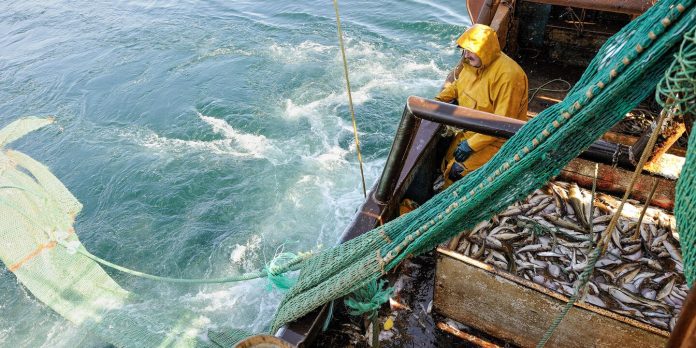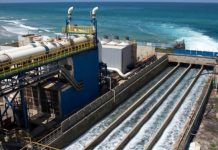Morocco is setting its sights on becoming a key player in the global seafood industry through its ambitious Halieutis Strategy. Positioned at the crossroads of trade between Africa, Europe, and the Middle East, the kingdom aims to establish itself as an international hub for seafood processing and enhancement.
Launched in 2009, this long-term plan focuses on sustainable development, leveraging Morocco’s rich marine resources while modernizing infrastructure and boosting competitiveness to seize international market opportunities.
A thriving industry with impressive growth
The seafood sector has experienced significant growth, marked by a surge in processing units. From 417 facilities in 2010 to 518 in 2023—a 24% increase—the expansion reflects Morocco’s success in attracting investment and developing a highly innovative industrial base. Moroccan exports of seafood, including fish, shellfish, and processed products, now generate approximately 22.9 billion dirhams annually, according to 2022 data.
Globally, the seafood market is undergoing rapid transformation. Demand for high-value, processed seafood products is on the rise, presenting new opportunities for Morocco. Trade agreements with key partners like the European Union, the United States, and various African nations have enhanced the kingdom’s access to strategic markets and strengthened its competitive edge.
Innovation and local development: Core pillars of the Halieutis strategy
A central aspect of Halieutis is maximizing the local value of marine resources. This approach prioritizes processing products domestically and introducing more high-nutritional seafood options to the national market. Companies in this sector benefit from tailored support designed to help them transition toward more sustainable and innovative operations.
Access to both domestic and international innovation funds allows Moroccan firms to develop products that meet global standards for quality, traceability, and environmental sustainability. Meanwhile, the aquaculture sector is rapidly expanding, offering a strategic response to challenges such as climate change and diminishing natural resources. Ongoing projects in sustainable aquaculture are bolstered by substantial investment in research and development.
Sustainable resource management: A key to long-term success
To ensure the longevity of its marine resources, Morocco has implemented a series of fishery management plans. To date, 30 such plans have been established, regulating pelagic, demersal, and coastal fisheries. These policies define authorized fishing zones, quotas, biological rest periods, and specifications for fishing vessels and equipment.
Scientific research plays a critical role in this sustainability effort. Over the past decade, Morocco has allocated 1.55 billion dirhams to fisheries research. These investments have improved stock assessment capabilities, promoted eco-friendly fishing gear, and driven innovation in aquaculture and genetic research.
Modern infrastructure and continuous training: Building a competitive edge
Morocco’s rise in the global seafood market has also been supported by the modernization of its port and industrial infrastructure. The government has made significant investments to equip key fishing areas with state-of-the-art facilities, including modern landing platforms, processing units, freezing plants, and logistical centers.
Continuous training for industry workers has become a strategic priority. In the face of evolving technological and environmental challenges, skill development ensures that sector operators can master new processing technologies, adhere to international health standards, and adopt sustainable practices.
Boosting domestic consumption: An untapped opportunity
While Morocco has excelled in seafood exports, its domestic market remains underdeveloped. To address this, the Halieutis Strategy encourages businesses to diversify their offerings for local consumers. By promoting the regular consumption of nutrient-rich seafood, such as omega-3-rich fish, the initiative aims to improve public health and foster greater demand within Morocco.
Public awareness campaigns highlighting the importance of a balanced diet with seafood are central to these efforts. Developing the local market can reduce dependency on exports and support broader economic resilience.
A bright future for the blue economy
Aligned with Halieutis’ objectives, Morocco is solidifying its status as a leader in the blue economy—an approach that balances sustainable marine resource use with economic growth, environmental protection, and coastal community well-being.
Through targeted investments, stringent resource management, and a vibrant industrial network, Morocco is paving the way to become a cornerstone of the global seafood industry. Its strategic vision is not only transforming the sector today but also preparing it to meet the challenges of tomorrow’s climate and technological landscape.





